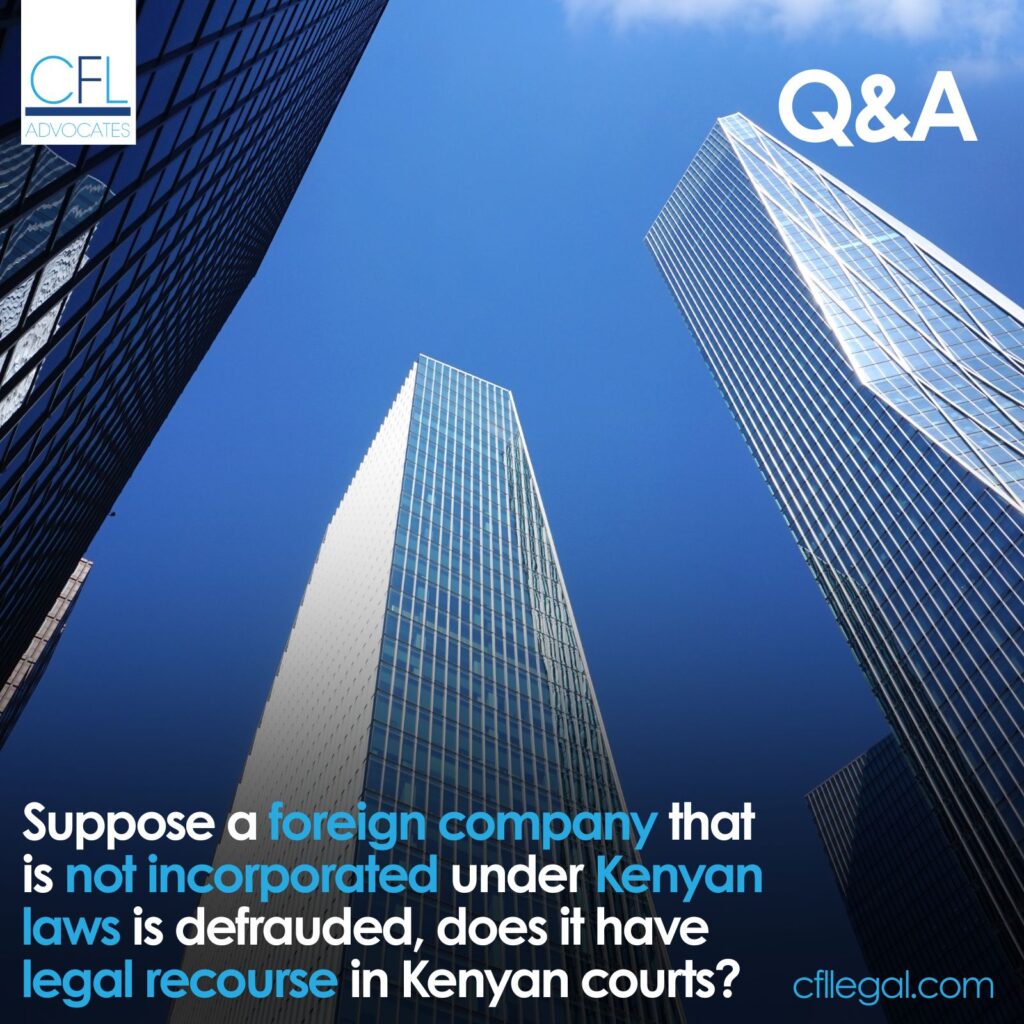
Question
Suppose XYZ company, a foreign company that is not incorporated under Kenyan laws is defrauded, does it have legal recourse in Kenyan courts?
Background
Section 974 of the Companies Act, 2015 provides that foreign companies may only carry on business in Kenya upon registration under the Act. Based on this mandatory requirement courts had previously held that unregistered foreign companies lacked locus standi to sue in Kenyan courts.
This was the position taken by the High Court in Stichting Rabo Bank Foundation v Ava Chem Limited & Another [2024] KEHC 9931 (KLR). In that case, the Plaintiff, Stichting Rabo Bank Foundation, filed suit against the Defendants for recovery of a debt advanced vide a financial support agreement. The Defendants raised a preliminary objection arguing that the Plaintiff, being unregistered in Kenya, had no locus standi. The High Court upheld the preliminary objection and dismissed the suit.
Analysis
The High Court has since departed from this position in Bruton Gold Trading LLC v Anne Atieno Amadi & Others (HCCC No. E211 of 2023). In that case, Bruton Gold Trading LLC, a company incorporated in Dubai, sued the Defendants in Kenya for breach of an agreement to export gold from Kenya to Dubai. The Defendants raised a preliminary objection on the basis that the Plaintiff lacked locus standi as it was not registered under Kenyan laws.
The High Court dismissed the objection and allowed the matter to proceed, distinguishing between legal capacity and the right to sue. The Court held that incorporation in the Plaintiff’s home country conferred legal personality, and therefore the argument that it was non-existent in law could not be sustained. The Plaintiff’s legal status was not contingent on its registration as a foreign company in Kenya.
The Court further explained that the right to sue is premised on a sufficient or legitimate interest in the matter before the court. Since the underlying agreement was to be performed in Kenya, the Court had jurisdiction to hear the dispute. In reaching its decision, the Court invoked constitutional provisions, including the definition of “person,” which encompasses both local and foreign companies, as well as the fundamental right of access to justice and to have a fair hearing, allowing any person to bring a claim for the enforcement of rights.
It follows that XYZ company can seek legal recourse in Kenyan courts despite its lack of incorporation in Kenya.
Conclusion
The Bruton Gold decision marks a decisive shift from the earlier restrictive position in Stichting Rabo. It affirms that foreign companies incorporated outside Kenya, even if not registered locally under section 974 of the Companies Act, may enforce their rights in Kenyan courts. This development underscores the judiciary’s commitment to constitutional principles of access to justice and fair hearing while enhancing Kenya’s reputation as a jurisdiction that respects the legal capacity of foreign investors.
For more information, kindly contact us at info@cfllegal.com.


